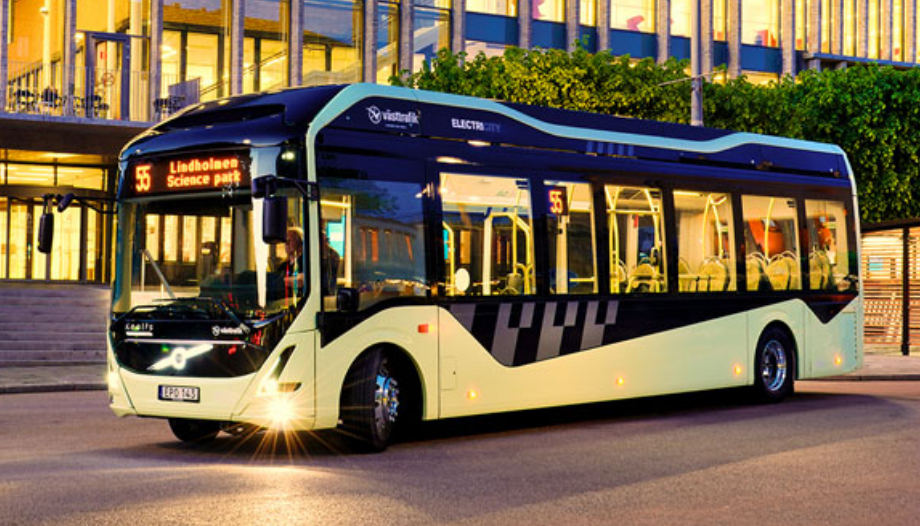New Electric Bus from Volvo with Greater Range
“As the demand for electric buses has grown very rapidly both in Europe and the rest of the world, it feels really good that we can offer cities an electric-bus system that provides better preconditions than ever to switch to sustainable, quiet and emission-free public transport,” says Håkan Agnevall, President of Volvo Buses. “During peak hours the buses can operate continuously without stopping to recharge. Instead, the batteries can be charged once traffic is at off-peak levels. On shorter routes, they can even run throughout the day and be charged at night.”
Volvo Buses has also expanded the range of options regarding the way the batteries are charged. Just like before the batteries in the new Volvo 7900 Electric bus can be fast-charged at the route’s end stops, via the open and competition-neutral OppCharge interface. However, they can now also be charged via cable, CCS, which is the European standard for charging of electric vehicles from the mains grid.
“Operators can choose the charge interface that best suits each particular occasion. For instance, CCS is suitable for high-power charging when the bus is parked in the depot,” says Johnny Lidman, Product Manager City Buses Europe at Volvo Buses.
The new Volvo 7900 Electric is being launched on the market and has its premiere showing at the Busworld international bus fair in Kortrijk, Belgium, on 20 to 25 October. The first models of Volvo’s new generation of electric buses are expected to become operational at the end of 2018.
The electric buses are sold in the form of a complete, turnkey solution, with Volvo taking care of all maintenance of both vehicles and batteries at a fixed monthly cost.
Category: General Update, Green, News











